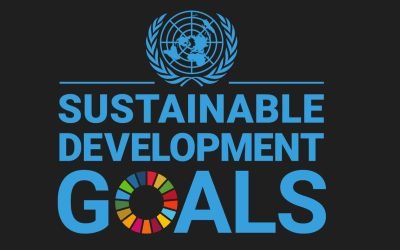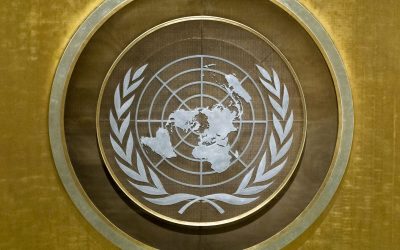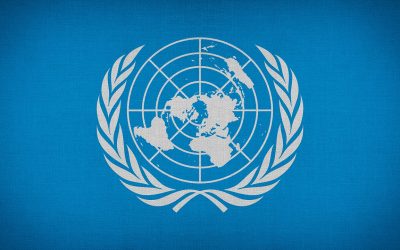In “Collectivized Rights” (in The Virtue of Selfishness) Ayn Rand defined a dictatorship as a country that does not recognize individual rights. She identified four characteristics of dictatorships: executions without trial or mock trials for political offenses (clearly meaning: criticism of the dictator or the ruling party); one-party rule (fake elections do not count); expropriation of private property (which would include fascism); and government censorship (no freedom of speech or the press).
In the Ayn Rand Letter (1972, Vol. 1, Nos. 13-15) “The Shanghai Gesture” she documented President Nixon’s abject, moral surrender to Communist China, a totalitarian dictatorship. He failed to state or defend America’s fundamental principles (nor Taiwan’s right to be a free country). He projected pragmatist humility, agreeing that the US and China had different political principles but never stating what they were nor whose were right. In contrast, the Chinese Communists projected moral certainty and their right to do whatever they want (backed up by numerous rationalizations).
Obviously, the core problem in opposing dictatorships is the moral self-doubt of our politicians and that of other free countries. But what is it that hand-wringing pragmatists are counting on when cooperating with dictators? The naïve belief that they can make a political deal. This error evades the fundamental nature of the dictator’s actual philosophy.
Consider, first, that dictators come into power and retain it by physical force. Even if there are initial elections with some semblance of honesty, real voting cannot last. One-party systems, often with fake voting, are axiomatic.
Second, because a dictator is not chosen by consent, he needs a moral sanction to rationalize his power. Ayn Rand said that “morality is the greatest of all intellectual powers.” The dictator needs to believe that his use of force is morally good. This cannot be achieved by reason, only by rationalization based on faith in some irrational philosophy (e.g., religion, Communism). This allows him to eliminate those who disagree with him without compunction. If he comes across as fallible or immoral, his rule can easily collapse. Dictators know that they cannot defend their power or decisions by reason, so they have to use force to eliminate negative opinions. To cover up any failures that cannot be hidden, they routinely blame it on foreign powers or agencies such as the CIA.
How frightened are dictators? Observe that Russia and China cannot even tolerate a small amount of dissent. Note China’s silencing of a single critic of their handling of the COVID crisis. (The health worker in question was taken into custody and evidently died). China withheld pertinent data from WHO. Note their assault on a single businessman who disagreed with certain economic policies. He has been allowed to function only if he keeps his mouth shut and follows strict orders. Or consider Russia’s assassinations and assassination attempts of even lone critics who have no followers or only a very small number of them. These types of actions reveal how philosophically vulnerable, and actually terror-stricken, dictators are. Their rule is based on guns (include secret police) and lies, not consent, and they fear that even a minuscule amount of criticism and the resulting dissent could mushroom out of control, motivating a subordinate or rival group to seize power. Contrast this with free countries like the U.S. where the President is either disliked or hated today by more than 70 million voters and is criticized daily in the press and yet survives due to our Constitution that protects rights. In sum, dictators are philosophically bankrupt, and they know it. Ironically, the media likes to call dictators Strong Men.
Given the above, how should free countries deal with dictators since they do not have moral principles such as honesty and integrity or respect for rights? As one Chinese writer said, “for the regime, truth and falsity are beside the point.” Their pragmatic code is like that of all criminals: the right thing to do is whatever I want and can get away with. (Dictators use anti-rights philosophies as a moral shield). So, no agreement (such a trading of goods or services), signed or not, is useful unless the promises can be verified. Violations are to be expected. Nuclear weapons agreements are not useful at all, because any country can easily hide its missiles. (One may recall the Iranians always refusing to allow inspectors to examine sites where nuclear weapons might be designed and built. The Israelis have kept some control by constantly sabotaging Iran’s secret work.) Dictators will always hack and spy and deny that they are doing it. It is proper to hack and spy back in self-defense. World War III may be electronic but an overpowering military is a must. Further, free countries must insure that have access to chemicals and minerals so that they are not monopolized by dictators. In short, never trust a dictatorship but verify and protect.
It goes without saying that dictators have a logical affinity (a “magnetic” attraction) for one another. Their common bond is hatred of and fear of free countries—countries which they cannot conquer and whose political values are a terrifying threat. Morally, they support each other’s rationalizations, e.g., “It’s right to crush dissent for the good of the country.” “Rights are a western prejudice.” China, Russia, North Korea, and Iran act to support one another militarily through supplying oil, food, weapons, intelligence, and technology such as hacking software. They continually support terrorism against the U.S. and its allies.
It should be noted that because dictators are amoral, they can turn on each other in a second if they believe it is to their advantage. Recall the fight to the death between Nazi Germany and Communist Russia.
What about the U. N.?
Everyone who reads the news has to know that the U.N. is a hypocritical farce. It has a Declaration of Human Rights which is partly correct. It includes freedom of speech and free elections, but the declaration is characteristically ignored. Numerous members of the U.N. are dictatorships, and they are never expelled. To complete the farce there has been a parade of dictatorships represented on the Human Rights councils. Countries take turns being on the council, but there are no moral-political requirements. They characteristically focus on condemning the U.S. and Israel.
The U.N. does not benefit free countries, but it does benefit dictatorships. Belonging to the U.N., which is allegedly based on rights and has free countries as members, gives the dictatorships moral respectability. Virtue by association. Further, there are always some dictatorships on the Security Council, and every member has veto power as to what the council will rule or recommend. It is not hard to guess what happens when an issue of genuine rights comes to a vote there.
The U N. is touted as an organization that will prevent war. It does not and does not prevent, and actually validates, dictatorship. A better organization would be something like a Society of Free Nations. Here there would be standards for membership based on objective principles (as noted in Ayn Rand’s four criteria above.) Of course, many judgment calls would have to be made because no nation today is perfect. The role for this group would be to make moral judgments, have mutual defense treaties, exchange information, and arrange special trade agreements. The existing UN would be allowed to fade away—or could be renamed, by outsiders, The Society of Dictatorships.
Some might fear that a new, world organization based on individual rights would make non-admitted countries feel inferior. Maybe so because all countries are not morally equal. But a more constructive way to look at it is as a vehicle to motivate countries to make themselves morally better and thereby attain moral pride and the practical benefits of freedom, including capitalism, and associations with countries that are economically successful.
Alarmists might argue that such a claim of moral virtue would lead to a world war. This will not happen if the free nations have moral confidence, maintain strong militaries, and cooperate with each other on defense. Free countries should maintain regular contact, over and above possible trade, with dictatorships in order to prevent miscalculations. Dictatorships should be told what to expect, e.g., we will protect freedom of travel on the high seas, support allies, etc.




